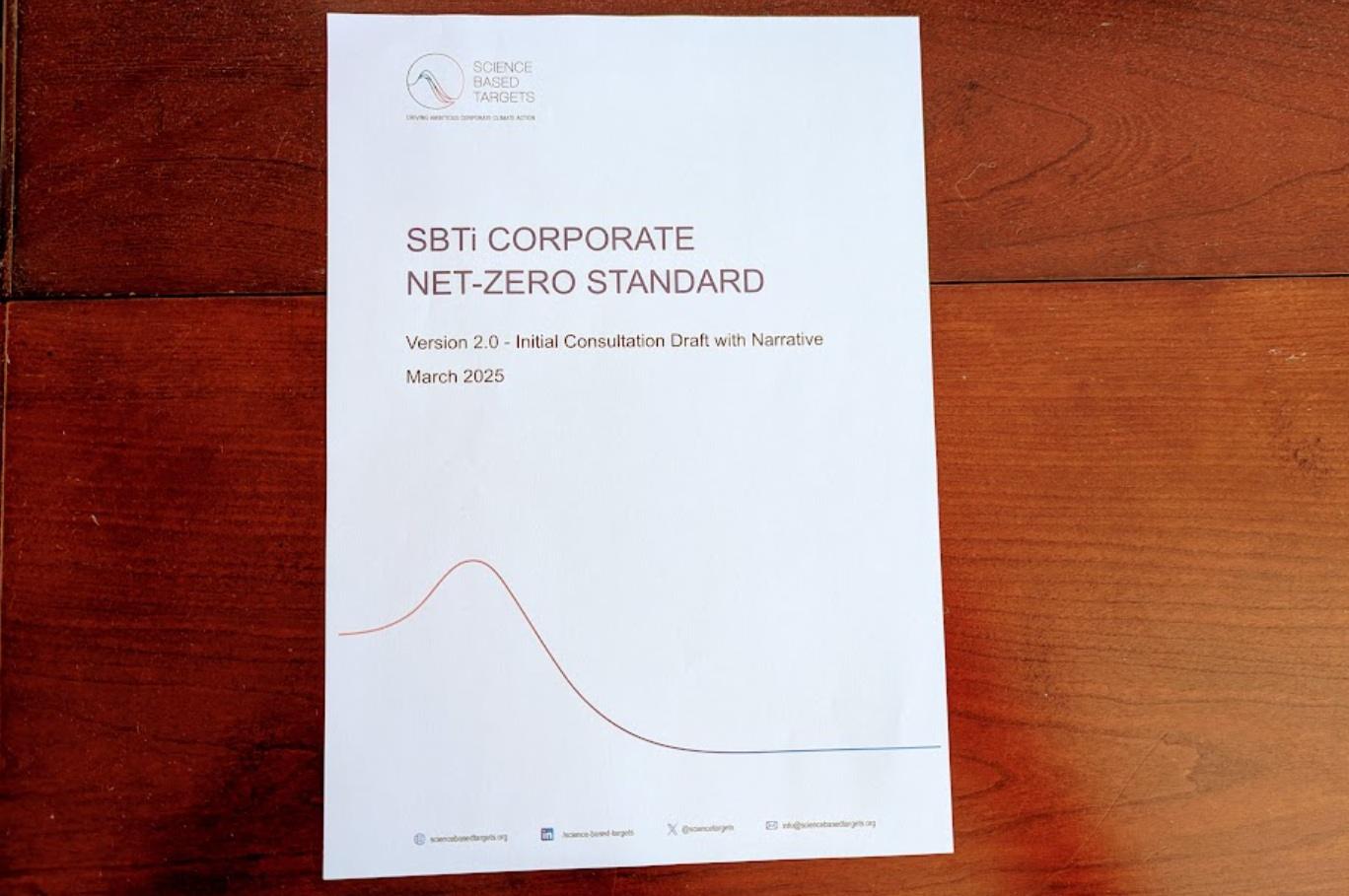
The Science Based Targets initiative (SBTi), one of the key organizations focused on aligning corporate environmental sustainability action with the global goals of limiting climate change, announced the release of Corporate Net-Zero Standard V2, the proposed update to its key standard to assess, certify and track companies’ decarbonization commitments to achieve net zero emissions and to support science-based climate target setting.
Key updates proposed in the new draft standard include explicit Scope 2 target setting to promote the adoption of zero-carbon energy, a requirement by large companies to set Scope 3 value chain emissions goals, while introducing more flexibility within Scope 3 targets setting, an increased focus on tracking and reporting on decarbonization progress, and options for the introduction of interim carbon removal targets.
The SBTi was founded in 2015 with the goal to establish science-based environmental target setting as a standard corporate practice. The organizations’ key functions include defining and promoting best practice in emissions reductions and net-zero targets in line with climate science, providing technical assistance to companies who set science-based targets, and providing companies with independent assessment and validation of their emissions reduction targets. To date, more than 10,000 businesses that have set science-based emissions reduction targets, or made commitments to do so.
The organization’s flagship first Corporate Net-Zero Standard was published in 2021, and the SBTi announced plans early last year to update the standard, but the process has been met with significant controversy over potential plans to allow the use of carbon credits to help address Scope 3 emissions in corporate climate targets.
In April 2024, the SBTi announced plans to extend the use of environmental attribute certificates (EACs), such as carbon credits, to tackle Scope 3 value chain emissions in the new standard. The announcement was met by a sharp internal backlash, with SBTi staff issuing a letter indicating that they were “deeply concerned” about the EAC plans, and reportedly calling for the resignation of the CEO and board members. Citing personal reasons, former SBTi CEO Luiz Amaral stepped down from his role in July.
In its new release, the SBTi made clear that similar to the current standard, the new proposed standard will not allow offsetting through purchasing carbon credits that do not originate from activities in companies’ value chain to meet emissions reduction targets. While the initial version includes an option for companies to neutralize residual emissions that remain at the net-zero target year after all possible abatement measures have been implemented, SBTi said that in recognition of the need to scale-up mitigation efforts well before 2050, including carbon removal capacity, the new draft includes a consultation on three options to address residual emissions on the pathway to net zero, including the introduction of interim carbon removal targets, as well as formally recognizing companies which are investing in Beyond Value Chain Mitigation (BVCM). BVCM is defines by the SBTi as “mitigation action or investments that fall outside a company’s value chain, including activities that avoid or reduce GHG emissions, or remove and store GHGs from the atmosphere.”
The new draft standard also introduces a requirement for distinct Scope 1 direct operational emissions and Scope 2 indirect emissions associated with the generation of purchased or acquired electricity, steam, heating or cooling. While targets for Scopes 1 and 2 had typically been aggregated in the past, the SBTi said that the change aims to increase action by companies in the shift to low-carbon energy, with the proposed standard including a requirement for companies to move to zero-carbon electricity by 2040.
Notably, the draft also replaces renewable electricity targets from the current standard with zero-carbon electricity targets, in a move to remain technology agnostic and accommodate for grids with nuclear electricity.
Many of the proposed updates in the new standard focus on Scope 3 emissions, which the SBTi said was identified as a barrier to setting net zero targets by more than half of the businesses that it surveyed. The draft proposes requiring all large and medium-sized companies in higher-income countries (Category A companies) to set Scope 3 targets, while also introducing increased flexibility such as options to set targets for green procurement and revenue generation, instead of setting an emissions reduction target, with a focus on suppliers in the most emissions-intensive sectors and direct suppliers, where companies have the highest influence.
Another key change proposed in the new draft standard is an increased focus on assessing progress towards net zero targets. While the current standard includes general requirements for companies to report on their emissions, the new proposed standard includes a standardized approach on assessing progress towards targets, including pre-defined formulas to be used for progress assessments. The draft also proposes a process for companies to renew their targets at the end of a target cycle, which takes into account performance during the prior cycle, which is considered for the next set of targets or to inform any action needed to address any potential underperformance.
The SBTi launched a consultation on the new draft standard, which will remain open until June 1. The organization also said that it will develop a comprehensive transition pathway to ensure that companies feel confident in setting targets under the current standard while V2 remains in the development process.
SBTi Chair Francesco Starace said:
“The SBTi has always been at the frontier of climate action. The draft standard addresses complex, emerging issues and lays the foundation to enable more companies to move further and faster towards net-zero. Working hand-in-hand with stakeholders across the ecosystem to seek and consider a diverse range of views, we aim to produce a standard that is both rigorous and practical, and works for businesses and the planet. With a limited carbon budget left, this is more important than ever. Companies can unlock long-term growth, drive transformation and build investor confidence by acting at pace to accelerate climate action.”
Click here to access the new draft standard and consultation.



